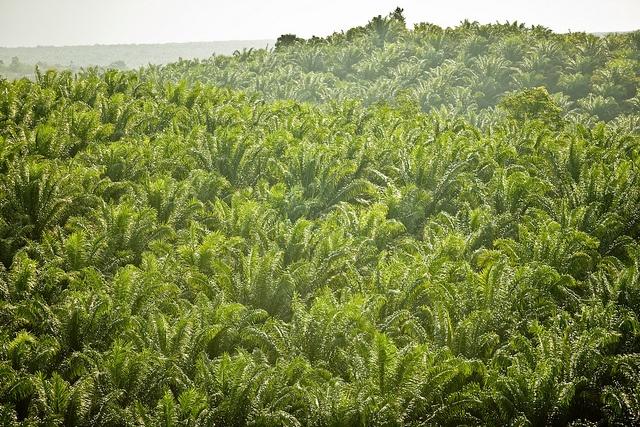
A founding member of the Roundtable on Sustainable Palm Oil (RSPO), Malaysia-based IOI Group symbolizes the palm oil industry’s struggles to prove that it can meet global demand without a negative impact on the environment and human rights. More companies have cut ties to this producer, as mounting evidence suggests that what the company says it is doing on paper does not necessarily match deeds on the ground across palm oil plantations in Malaysia and Indonesia.
The latest domino to fall is Cargill, the largest privately-owned food company in the U.S. and a major producer and supplier of palm oil to food processors worldwide.
Cargill’s announcement is the latest setback in a long string of bad news for IOI, which started this spring when Unilever said it would no longer source from the company after its membership was suspended by the RSPO. IOI dug itself into a deeper hole when it filed a lawsuit against the RSPO in a Swiss court, only to backtrack when the outcry proved to become an embarrassment not just for IOI, but the industry at large.
To that end, NGOs including the Center for International Policy (CIP) continued to pressure all companies within the global palm oil supply chain to turn their words and pledges into action. “Groups like ours have been revealing over and over again the degree of IOI’s deforestation and exploitation,” said Deborah Lapidus, a spokesperson for CIP. “Companies, and that now includes Cargill, have been burned by IOI far too many times to settle for half measures.”
IOI has not come close to meeting any of the demands outlined by a large coalition of NGOs and civil society groups, Lapidis said. Cargill has its own terms and conditions for sustainable palm oil sourcing, which it asked IOI to accept in order for the producer to maintain the companies’ business relationship. That deadline was set for last Friday, and when IOI failed to follow through, Cargill then pulled the plug, Lapidis told TriplePundit.
The result could be progress for both environmental watchdogs and citizens who insist they have been exploited by the palm oil industry. “The fact that Cargill dropped IOI, which is one of the largest palm oil suppliers in the world, will drive transformation throughout the palm oil supply chain," Lapidus said.
Meanwhile many NGOs, including Rainforest Action Network (RAN) and Greenpeace, allege that the environmental and social problems resulting from the palm oil industry are only becoming worse. And they have singled out companies such as PepsiCo in an attempt to raise awareness about the industry’s issues. Another environmental watchdog, Forest Trends, recently issued a report that casts doubt on many companies’ commitments to ending deforestation in their supply chains.
Despite its shift on IOI, Lapidus said Cargill still has much work to do in order to rid its supply chain of companies tied to deforestation and labor exploitation. For example, RAN accused the food company of maintaining business ties with producers including Grupo Olmeca of Guatemala and Malaysia’s Kuala Lumpur Kepong Berhad (KLK). Both companies stand accused of numerous human rights violations, as has another Malaysian firm, Felda Global Vantures, another Cargill supplier.
Nevertheless, NGOs are hopeful that the Cargill announcement will spur other food and consumer packaged goods companies to act, while also serving to nudge IOI to change its business practices.
“Cargill’s action is a great cautionary tale of deforestation in today's world,” Lapidus said. “This is evidence that the market is working. More companies are responding to the growing evidence that some suppliers, including IOI, are causing deforestation. And the fact that IOI has taken an economic hit from losing another large customer will have a huge impact on how other companies will approach global palm oil sourcing.”
Image credit: Rainforest Action Network/Flickr

Leon Kaye has written for 3p since 2010 and become executive editor in 2018. His previous work includes writing for the Guardian as well as other online and print publications. In addition, he's worked in sales executive roles within technology and financial research companies, as well as for a public relations firm, for which he consulted with one of the globe’s leading sustainability initiatives. Currently living in Central California, he’s traveled to 70-plus countries and has lived and worked in South Korea, the United Arab Emirates and Uruguay.
Leon’s an alum of Fresno State, the University of Maryland, Baltimore County and the University of Southern California's Marshall Business School. He enjoys traveling abroad as well as exploring California’s Central Coast and the Sierra Nevadas.














